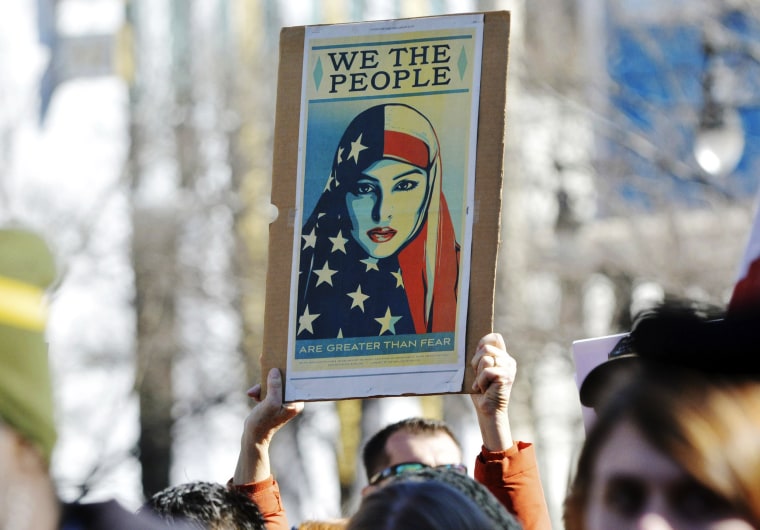Aid and advocacy groups reacted with dismay and outrage Friday to Donald Trump’s order imposing a temporary ban on Syrian refugee admissions to the U.S., and restrictions on entering the U.S. on people from several predominantly Muslim nations.
The Council on American-Islamic Relations said it will announce a Constitutional challenge to what it called a "Muslim ban." News of the order had Princeton University urging students to delay travel to countries that could be affected.
"This is no time for America to turn its back on people ready to become patriotic Americans," President and CEO David Miliband said in a statement. The group called Trump’s actions "harmful and hasty."
Trump's order suspends the U.S. Refugee Admissions Program for 120 days, and indefinitely suspends admission of Syrian refugees to the U.S. until "sufficient changes" have been made to the program.
Related: Trump Signs Executive Order Restricting Entry by Refugees
The order does not specifically say it targets Islam but it suspends most entry for 90 days from certain nations based on statute related to the Visa Waiver Program.
The most recent version of that visa waiver program put restrictions on those who had traveled to seven countries since March of 2011: Iraq, Syria, Iran, Sudan, Libya, Somalia, or Yemen. The order says there are exemptions for certain visas.
One Twitter user expressed fear for his father’s ability to travel in and out of the United States to attend a family wedding, despite saying he was a legal resident, asking: "Is this real?"
The chairman of The United States Conference of Catholic Bishops committee on migration said "we strongly disagree" with the order.
One Tufts professor whose synagogue planned to sponsor a Syrian family's resettlement here responded with outrage in a tweet that went viral.
"Dear @POTUS: on Holocaust Remembrance Day my synagogue told me the Syrian refugee family we're sponsoring is not coming," Daniel W. Drezner said in a tweet, telling the president to "go [f---] yourself."
Many Democrats condemned the order.
"Make no mistake — this is a Muslim ban," said California Sen. Kamala Harris, a member of the U.S. Senate Committee on Homeland Security & Governmental Affairs.
That sentiment echoed was by her colleague on the Senate Foreign Relations Committee, Sen. Edward Markley of Massachusetts who said the order is “more about extreme xenophobia than extreme vetting… President Trump may not call it a Muslim ban, but it is, and runs afoul of our morals and values.”
Advocates responded similarly.
"'Extreme vetting' is just a euphemism for discriminating against Muslims,” the American Civil Liberties Union said in a statement. "Any effort to discriminate against Muslims and favor other religions runs afoul of the First Amendment."
Amnesty International USA called the order "cruel" and "inhumane" and said it violates international law. "The vast majority of Americans reject this malicious and divisive agenda, which violates human rights and goes against this country’s shared values of equality, dignity, and opportunity for all," Executive Director Margaret Huang said in a statement.
Still others noted pointedly that it was Holocaust Memorial Day, with one Twitter account poignantly memorializing refugees who were turned away at the border and later murdered for their religion.
Trump said the executive order was necessary to ensure that refugees and others from some countries are properly screened, and at the signing he pledged to "keep radical Islamic terrorists out of the United States of America."
The order cites the Sept. 11 attacks as justifying the restrictions. Most of the hijackers in the 9/11 attacks were Saudi Arabian nationals, and others were from Egypt, the United Arab Emirates and Lebanon — countries not named in the executive action.
Some Republicans cheered Trump's order.
"Our number one responsibility is to protect the homeland,” House Speaker Paul Ryan said in a statement. "President Trump is right to make sure we are doing everything possible to know exactly who is entering our country."
Alabama Gov. Robert Bentley said in a statement that "President Trump is right to stop this very flawed process until extreme vetting can take place."

